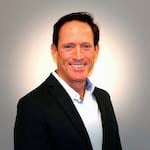The Right Seat for Customer Success
The Customer Success function should report to whoever holds budgetary responsibilities for the highest revenue-generating department, regardless if it is a cost center associated with the Cost of Goods Sold (COGS) or a profit contributor. It is this place of monetary responsibility that should determine CS ownership.
In an ideal scenario, the Customer Success leader should have a VP title and report to a C-level executive. The CS leader has the ability to contribute financially and operationally to every other function in the company, as well as to every single customer. By assigning a senior title and executive-level reporting, you’re setting CS up for success by equipping it with its rightful authority and autonomy. You also signal to both your customers and your internal team how much your company values CS and that you recognize the strength of its overall contribution to and potential impact on the organization.
Anywhere Can Be Home
Due to the relatively new emergence of Customer Success (CS) in organizations (new, that is, in comparison with such departmental stalwarts as sales and product), its reporting lines and ownership are often debated. Simplistically, the reasons companies install CS should answer the questions of where it should live and to whom it should report. For example, if CS’s mandate is to drive PLG (product-led growth), onboarding, and adoption, the team can reside within the product department. If CS exists to help drive new revenue, sales is a more logical home. Ideally, in a true customer-centric organization, CS is led by a Chief Customer Officer (CCO) who reports directly to the CEO.
The Everything Department
By design, Customer Success has the limitless potential to encounter all customer touchpoints. This is why leading companies often refer to it as “The Everything Department.” As such, it is frequently destined to become companies’ revenue-generating junk drawer—always useful, always the dependable last stop. Consequently, it is of utmost importance for companies to align the CS function’s roles and responsibilities with the other revenue-generating and customer-facing teams. These can include sales, marketing, support, professional services, billing, accounts payable, technical account management, customer advisory boards, deal desks, onboarding, renewals, implementation teams, and win backs. Here’s how to set your CS lead—and your revenue machine—up for success.
Spoiler Alert/Cut to the Chase
The Customer Success function should report to whoever holds budgetary responsibilities for the highest revenue-generating department, regardless if it is a cost center associated with the Cost of Goods Sold (COGS) or a profit contributor. It is this place of monetary responsibility that should determine the CS ownership.
In an ideal scenario, the Customer Success leader should have a VP title and report to a C-level executive. The CS leader has the ability to contribute financially and operationally to every other function in the company, as well as to every single customer. By assigning a senior title and executive-level reporting, you’re setting CS up for success by equipping it with its rightful authority and autonomy. You also signal to both your customers and your internal team how much your company values CS and that you recognize the strength of its overall contribution to and potential impact on the organization.
Beware of the Head of Customer Success
Many organizations use a “Head” of Customer Success title to allow for flexibility in direction and future decision–making. Some earlier stage companies who do this are likely just testing the CS waters, hedging their bets on an inexperienced senior leader whom they’ve tapped to run the department, and who may eventually develop into their CS Director, VP, CCO, etc.
More likely, the C-levels in these companies are not committed to Customer Success as a primary philosophy and necessity for their company.
By not committing to a VP, or at least an Executive Director level title to lead the CS function, companies and their leaders belie confidence in themselves and in the validity of Customer Success as a viable organizational function in itself. And they essentially lack conviction in Customer Success as a valuable business driver. As a result, these companies are unlikely to be customer-focused, –obsessed, or –centric.
Because of this lack of executive-level buy-in, a Head of CS is likely to eventually be absorbed by another revenue leader (CRO, CSO, CCO, COO, etc.). Furthermore, it’s highly unlikely a Head of Customer Success will garner the respect, executive backing, senior support, budget, authority, or visibility to enact change, growth, or direction. The first Customer Success hire in many smaller companies often find themselves instantly saddled with the weight of “fixing churn” and building post-sales motions. These hurdles don’t bode well for a successful CS practice.
This leaves the individual accepting the CS leadership position carrying the burden of all of the responsibilities and objectives with none of the authority or empowerment to contribute to revenue growth and enact fundamental change.
Ask these 10 questions to decipher whether you’re setting your company’s CS leader up for success:
- Who does the leader of Customer Success report to?
- What are their and their teams’ performance metrics?
- What is the budget (cost center, loss leader, profit engine)?
- What is motivating the hire?
- What are the highest-level meetings this position will be involved in (board, executive, annual strategy, revenue leaders, P&L/earnings/EBITDA, leadership)?
- What revenue responsibilities do they own?
- Is there a Deal Desk, VOC, CAB, or other feedback loop?
- Do you consider your growth strategy PLG, CLG, CVLG, SLG?
- What are the headcount projections and budgetary commitments for the next 12 months?
- What are their (the hiring managers’ and interviewers’) Customer Success philosophies, beliefs, and experiences?
Ready to talk?


